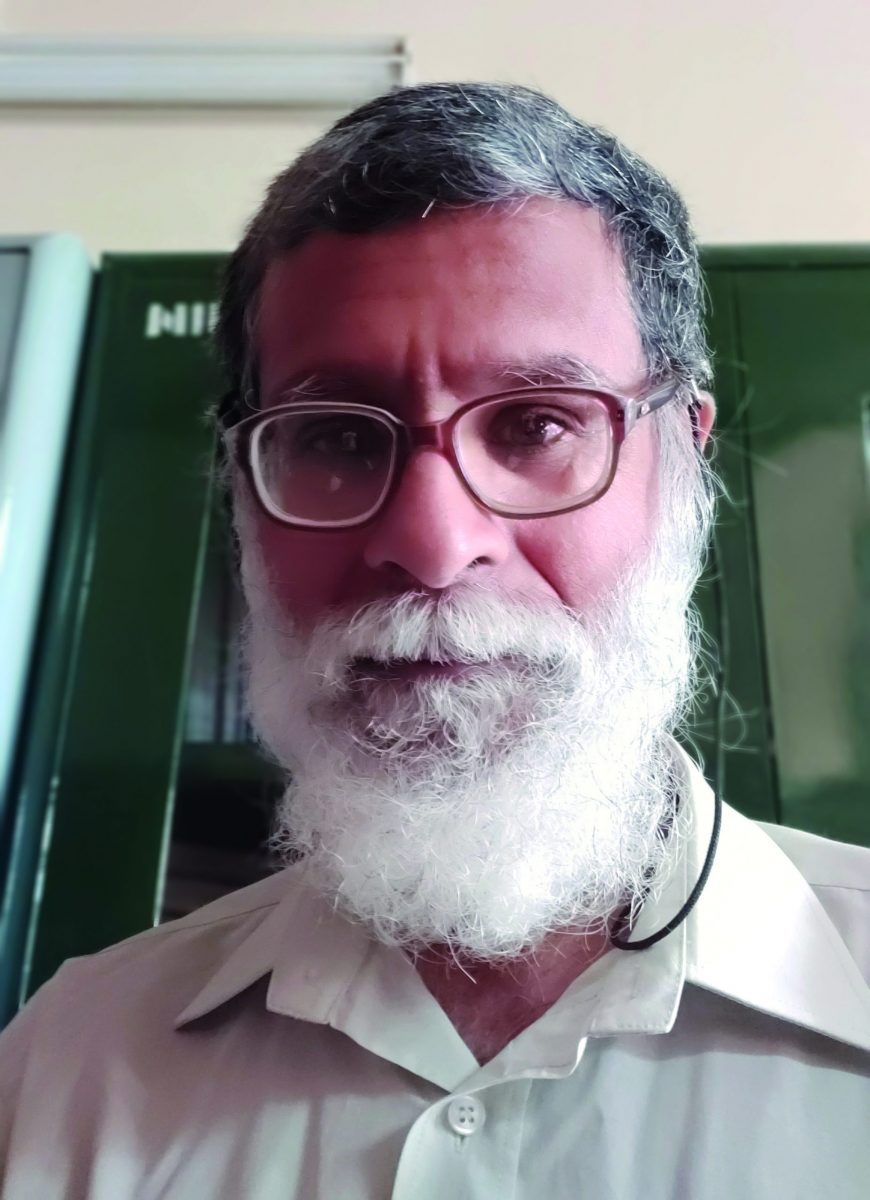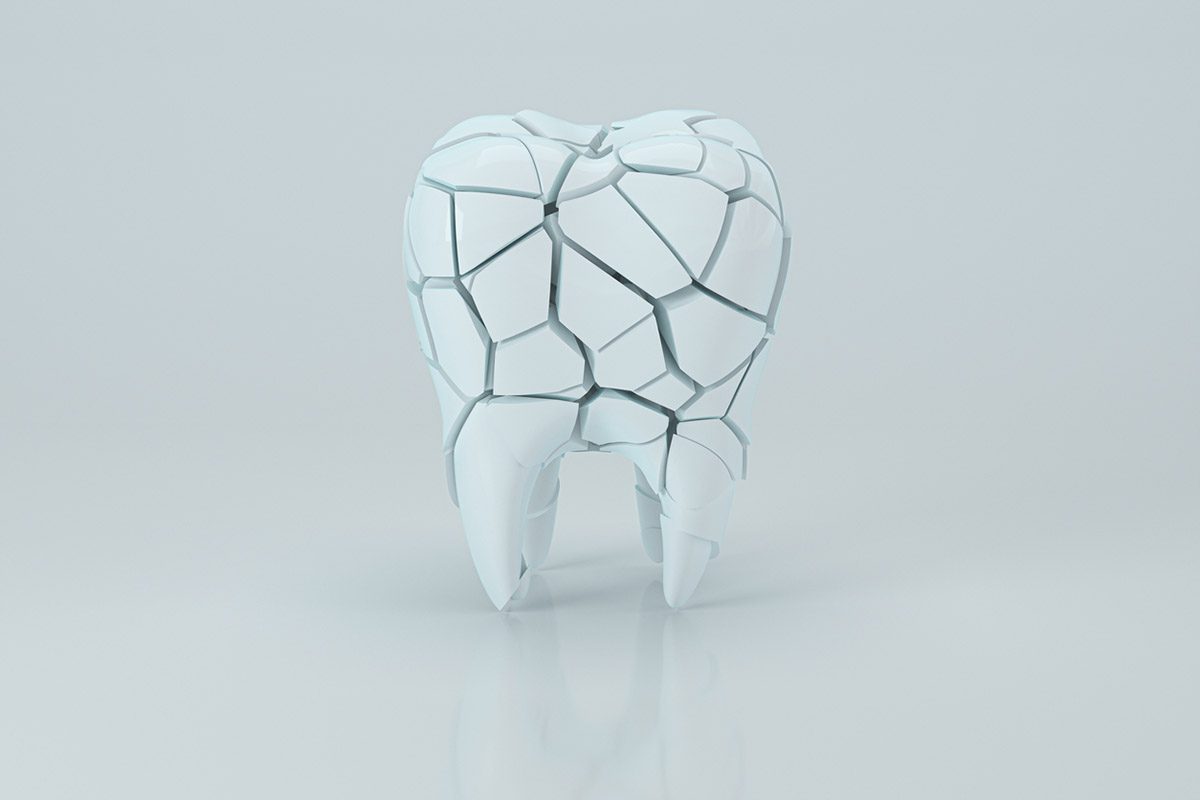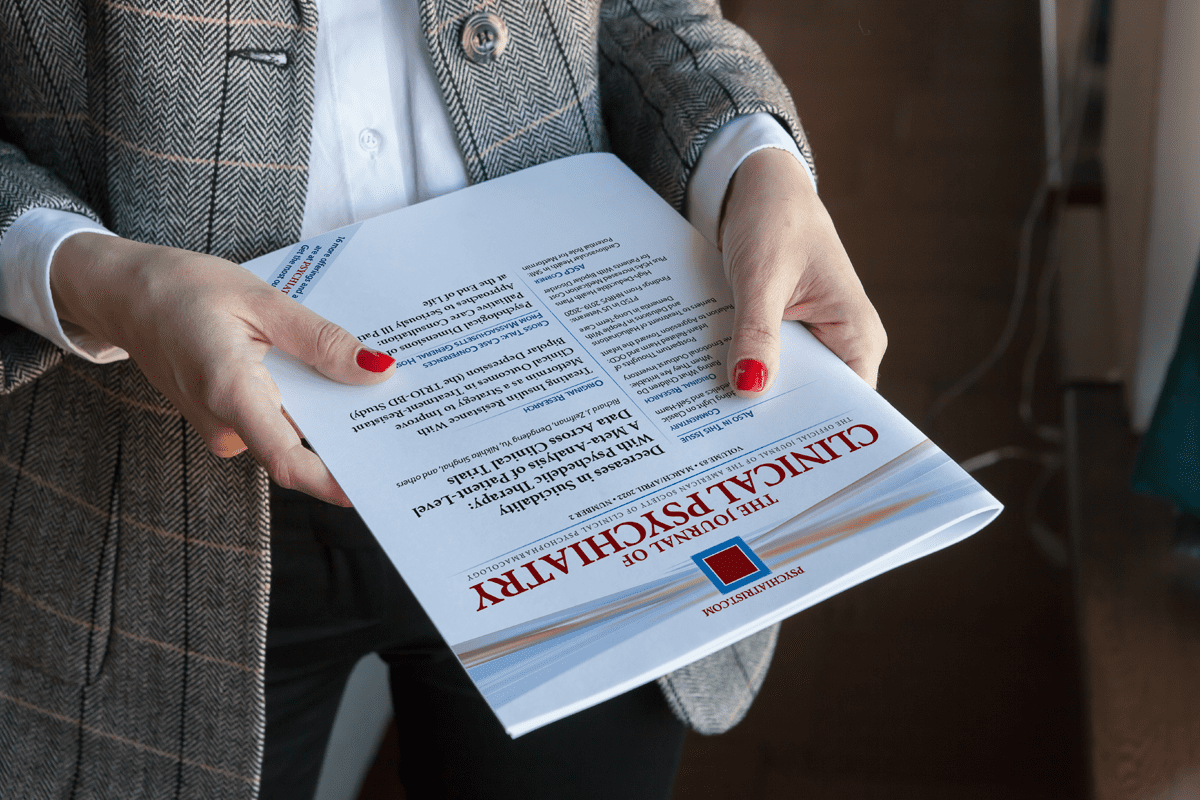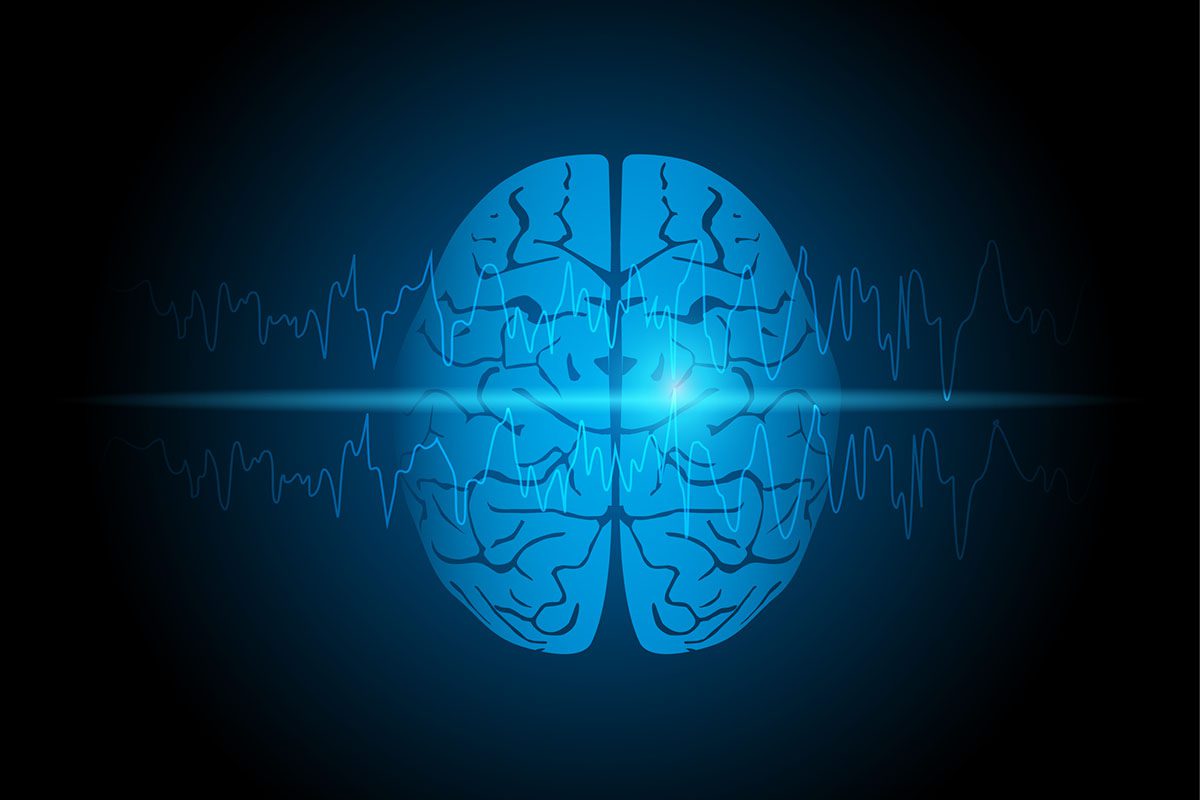Clinical Problem
Ms Q, a 33-year-old woman, is experiencing her third episode of major depression. She does not wish to receive conventional antidepressant medications because, although these had been effective during her previous episodes, the treatment-emergent adverse effects had been distressing. She asks whether there are complementary and alternative medicine options that might be effective for her. She is particularly interested in curcumin as a potential treatment.
Introduction
Many herbs and nutritional supplements have been proposed for clinical disorders in psychiatry. Examples include Ashwagandha for anxiety,1 Brahmi for cognitive decline,2 colostrinin for dementia,3 and ginseng for sexual dysfunction.4 Herbal and nutritional approaches have been examined in depression, as well, with treatments such as St John’s wort,5 l-methylfolate,6 and S-adenosylmethionine.6 Curcumin, obtained from turmeric, is one such unconventional treatment that has been studied in depression.
Turmeric is a spice obtained from the rhizome of the plant Curcuma longa. Turmeric contains a number of bioactive substances, including polyphenols, sesquiterpenes, diterpenes, triterpenoids, sterols, and alkaloids. Turmeric has long been used by herbal medical practitioners to treat gynecologic, gastric, hepatic, hematologic, and infectious diseases. Laboratory studies indicate possible benefits of turmeric in proinflammatory diseases, cancer, neurodegenerative diseases, depression, diabetes, obesity, and atherosclerosis.7
Curcumin, one of the best studied ingredients in turmeric, comprises about 2%-5% of the spice. Laboratory studies suggest that curcumin has potential as an antimicrobial, insecticidal, larvicidal, antimutagenic, radioprotector, and anticancer agent. Curcumin modulates several cellular signaling pathways.7 It has demonstrated efficacy in animal models of depression, and suggested antidepressant mechanisms include regulation of serotonin and dopamine neurotransmission, attenuation of indices of neuroinflammation, moderation of disturbances in the hypothalamo-pituitary-adrenal axis, and protection against oxidative stress and mitochondrial damage.8 Additionally, curcumin has neuroprotective action, increases brain-derived neurotrophic factor in stressed rats, and stimulates hippocampal neuroplasticity.9-11
Curcumin is widely available as a nutritional supplement, and a simple Internet search shows that it is advertised for a large number of health-related problems. However, laboratory data and successes in animal models are insufficient grounds to recommend a medication to patients; safety and efficacy data from randomized controlled trials (RCTs) are necessary. Several clinical trials, including RCTs, have examined the antidepressant action of curcumin. These trials are briefly examined in the next section.
Curcumin as an Antidepressant: Clinical Trial Data
Bergman et al12 randomly assigned 40 mostly elderly patients with major depressive disorder (MDD) to curcumin (500 mg/d) or placebo treatment for 5 weeks; all patients also received escitalopram (n = 19) or venlafaxine (n = 21). One curcumin-treated patient dropped out (reason not specified). The curcumin group showed nonsignificantly greater improvement during the first week of treatment; otherwise, outcomes on the Hamilton Depression Rating Scale (HDRS), Montgomery-Asberg Depression Rating Scale (MADRS), and Clinical Global Impression-Severity scale (CGI-S) were similar in the curcumin and placebo groups. No adverse effects were reported by the patients. This study was industry-independent.
Lopresti et al13 randomized 56 patients with MDD to treatment with curcumin (1,000 mg/d) or placebo for 8 weeks. Patients were assessed using the Inventory of Depressive Symptomatology self-rated version (IDS-SR30) and the Spielberger State-Trait Anxiety Inventory (STAI). One placebo and 3 curcumin patients dropped out of the study, with only 1 dropout (in the curcumin group) due to adverse effects. There were no IDS-SR30 or STAI differences between curcumin and placebo groups either in the whole sample or in a subsample of 8 curcumin and 10 placebo patients who were considered to have atypical depression (based on items extracted from the IDS-SR30). In secondary analyses, the authors found that, during the last 4 weeks of the trial (but not during the first 4 weeks), curcumin outperformed placebo on the IDS-SR30. Curcumin did not outperform placebo during any time period on the STAI. There were also minor advantages for curcumin during the second half of the study on some total or subscale ratings in the patients with atypical depression. Twelve curcumin and 14 placebo patients reported adverse events; these were mostly minor. This study was industry-supported.
Panahi et al14 treated 140 MDD patients with antidepressants augmented by an open-label curcuminoids-piperine combination (1,000 + 10 mg/d; n = 75) or with antidepressants alone (n = 65). Twenty-nine patients dropped out: 14 in the curcumin group (5 due to adverse events) and 15 in the control group (all lost to follow-up). At the end of the 6-week trial, there were improvements in Hospital Anxiety and Depression Scale (HADS) and Beck Depression Inventory II (BDI-II) scores in both treatment groups. However, improvements in HADS total scale and anxiety and depression subscale scores were far greater in the experimental group than in the control group. Similarly, improvements in BDI-II total scale and somatic and cognitive (but not affective) subscale scores were greater in the experimental group than in the control group. Adverse events were not recorded in this study. This study was industry-independent.
Sanmukhani et al15 randomized 60 MDD patients to receive open-label curcumin (1,000 mg/d), fluoxetine (20 mg/d), or a combination of the 2 treatments for 6 weeks. Dropout accounted for 6, 4, and 5 patients in these groups, respectively; all of these patients but 1 were lost to follow-up. There was no significant difference across groups in either mean change scores on the HDRS or response rates (63% vs 65% vs 78%, respectively). Global outcomes were also comparable across groups. Two patients in each monotherapy arm and 5 patients in the combined treatment arm reported treatment-emergent adverse events; all were minor. This study was industry-independent.
In none of the trials reviewed was curcumin associated with more treatment-emergent adverse events than placebo. There are at least 2 possible interpretations. Curcumin may indeed be well tolerated by depressed patients, at least in the doses studied; in fact, curcumin has been well tolerated in precancerous states at doses up to 12 g/d.16 It is also possible that patients who consent to participate in complementary and alternative medicine trials may be favorably inclined toward such treatments and hence less likely to experience nocebo-related adverse outcomes.
Curcumin as an Antidepressant: Limitations of the Clinical Trials
The clinical trials described in the previous section had several limitations. Sample sizes were mostly small. Dosing was limited to the 500-1,000 mg/d range. One RCT15 did not have a placebo or untreated control arm, and so there was no way of knowing how much of the improvement was related to nonspecific factors17 and how much was treatment-related; in addition, in this RCT, only raters (and not patients) were blinded to treatment assignment.
The antidepressant augmentation RCTs12,15 may have failed to identify treatment benefits because of an antidepressant-related ceiling effect in nonrefractory patients.
The only trial that found a clear advantage for curcumin14 was not randomized, not blinded, and not placebo-controlled, and so the results cannot be interpreted. Curiously, the authors labeled the comparison group as “control group” in 1 table and as “placebo group” in 2 other tables even though they acknowledged in their discussion that they did not administer placebo. All patients in this study14 were taking at least 1 antidepressant, some were taking more than 1 antidepressant, and some were taking benzodiazepines, as well. Lastly, the comparison group in this trial may have been atypical because the contained patients showed a clinically negligible improvement at the 6-week study endpoint.
There were individual limitations in the other studies, too. For example, Lopresti et al13 performed a large number of secondary and apparently unpreplanned, exploratory analyses without correcting for type I statistical errors. The IDS-SR30 and the STAI are both self-report instruments; no observer-rated instruments were used, such as the HDRS or the MADRS. No global assessment was conducted, using measures such as the CGI-S.
Finally, the Bergman et al12 study ended at 5 weeks, when patients were still mildly depressed and when further clinical changes might have been expected.
Conclusions
Encouraging laboratory data notwithstanding, curcumin (500-1,000 mg/d for 5-8 weeks) has questionable or no antidepressant benefits as monotherapy or antidepressant augmentation therapy in patients with major depressive illness.
Parting Notes
- The oral bioavailability of curcumin is poor18; therefore, the formulation in which curcumin is administered assumes importance. Many curcumin formulations contain ingredients that are intended to improve the absorption of curcumin. Three different curcumin extracts/formulations were studied in the 4 clinical trials reviewed in this article. On the one hand, given that data were limited for individual formulations, it is possible that a particular formulation might succeed in other (future) trials. On the other hand, the unimpressive and unconvincing results (regardless of the formulation studied) do appear to suggest therapeutic inefficacy. This is an important issue because a wide range of oral curcumin products is commercially available.
- Given the absence of clear-cut acute antidepressant effects in nonrefractory patients, it is pointless to lament the absence of long-term studies or studies in patients with medication-refractory illness.
- The data do not rule out the possibility that refinement of a curcumin extract may identify 1 or more ingredients that, in the right dose, may provide antidepressant action. Or, improvements in a curcumin formulation may result in improved bioavailability of curcumin or higher content of the ingredients that matter to antidepressant action.
 Each month in his online column, Dr Andrade considers theoretical and practical ideas in clinical psychopharmacology with a view to update the knowledge and skills of medical practitioners who treat patients with psychiatric conditions.
Each month in his online column, Dr Andrade considers theoretical and practical ideas in clinical psychopharmacology with a view to update the knowledge and skills of medical practitioners who treat patients with psychiatric conditions.
Department of Clinical Psychopharmacology and Neurotoxicology, National Institute of Mental Health and Neurosciences, Bangalore, India ([email protected]).
Financial disclosure and more about Dr Andrade.
REFERENCES
1. Andrade C, Aswath A, Chaturvedi SK, et al. A double-blind, placebo-controlled evaluation of the anxiolytic efficacy of an ethanolic extract of Withania somnifera. Indian J Psychiatry. 2000;42(3):295-301. PubMed
2. Andrade C, Chandra JS. Anti-amnestic properties of Brahmi and Mandookaparni in a rat model. Indian J Psychiatry. 2006;48(4):232-237. PubMed doi:10.4103/0019-5545.31554
3. Stewart MG. Colostrinin: a naturally occurring compound derived from mammalian colostrum with efficacy in treatment of neurodegenerative diseases, including Alzheimer’s . Expert Opin Pharmacother. 2008;9(14):2553-2559. PubMed doi:10.1517/14656566.9.14.2553
4. Choi YD, Park CW, Jang J, et al. Effects of Korean ginseng berry extract on sexual function in men with erectile dysfunction: a multicenter, placebo-controlled, double-blind clinical study. Int J Impot Res. 2013;25(2):45-50. PubMed doi:10.1038/ijir.2012.45
5. Sarris J. St John’s wort for the treatment of psychiatric disorders. Psychiatr Clin North Am. 2013;36(1):65-72. PubMed doi:10.1016/j.psc.2013.01.004
6. Papakostas GI, Cassiello CF, Iovieno N. Folates and S-adenosylmethionine for major depressive disorder. Can J Psychiatry. 2012;57(7):406-413. PubMed
7. Gupta SC, Sung B, Kim JH, et al. Multitargeting by turmeric, the golden spice: from kitchen to clinic. Mol Nutr Food Res. 2013;57(9):1510-1528. PubMed doi:10.1002/mnfr.201100741
8. Lopresti AL, Hood SD, Drummond PD. Multiple antidepressant potential modes of action of curcumin: a review of its anti-inflammatory, monoaminergic, antioxidant, immune-modulating and neuroprotective effects. J Psychopharmacol. 2012;26(12):1512-1524. PubMed doi:10.1177/0269881112458732
9. Xu Y, Li S, Vernon MM, et al. Curcumin prevents corticosterone-induced neurotoxicity and abnormalities of neuroplasticity via 5-HT receptor pathway. J Neurochem. 2011;118(5):784-795. PubMed doi:10.1111/j.1471-4159.2011.07356.x
10. Dong S, Zeng Q, Mitchell ES, et al. Curcumin enhances neurogenesis and cognition in aged rats: implications for transcriptional interactions related to growth and synaptic plasticity. PLoS ONE. 2012;7(2):e31211. PubMed doi:10.1371/journal.pone.0031211
11. Liu D, Wang Z, Gao Z, et al. Effects of curcumin on learning and memory deficits, BDNF, and ERK protein expression in rats exposed to chronic unpredictable stress. Behav Brain Res. 2014;271:116-121. PubMed doi:10.1016/j.bbr.2014.05.068
12. Bergman J, Miodownik C, Bersudsky Y, et al. Curcumin as an add-on to antidepressive treatment: a randomized, double-blind, placebo-controlled, pilot clinical study. Clin Neuropharmacol. 2013;36(3):73-77. PubMed doi:10.1097/WNF.0b013e31828ef969
13. Lopresti AL, Maes M, Maker GL, et al. Curcumin for the treatment of major depression: a randomised, double-blind, placebo controlled study. J Affect Disord. 2014;167:368-375. PubMed doi:10.1016/j.jad.2014.06.001
14. Panahi Y, Badeli R, Karami GR, et al. Investigation of the efficacy of adjunctive therapy with bioavailability-boosted curcuminoids in major depressive disorder [published online ahead of print August 4, 2014]. Phytother Res. PubMed doi:10.1002/ptr.5211
15. Sanmukhani J, Satodia V, Trivedi J, et al. Efficacy and safety of curcumin in major depressive disorder: a randomized controlled trial. Phytother Res. 2014;28(4):579-585. PubMed doi:10.1002/ptr.5025
16. Cheng AL, Hsu CH, Lin JK, et al. Phase I clinical trial of curcumin, a chemopreventive agent, in patients with high-risk or pre-malignant lesions. Anticancer Res. 2001;21(4B):2895-2900. PubMed
17. Andrade C. There’s more to placebo-related improvement than the placebo effect alone. J Clin Psychiatry. 2012;73(10):1322-1325. PubMed doi:10.4088/JCP.12f08124
18. Kurita T, Makino Y. Novel curcumin oral delivery systems. Anticancer Res. 2013;33(7):2807-2821. PubMed


 Each month in his online column, Dr Andrade considers theoretical and practical ideas in clinical psychopharmacology with a view to update the knowledge and skills of medical practitioners who treat patients with psychiatric conditions.
Each month in his online column, Dr Andrade considers theoretical and practical ideas in clinical psychopharmacology with a view to update the knowledge and skills of medical practitioners who treat patients with psychiatric conditions.




